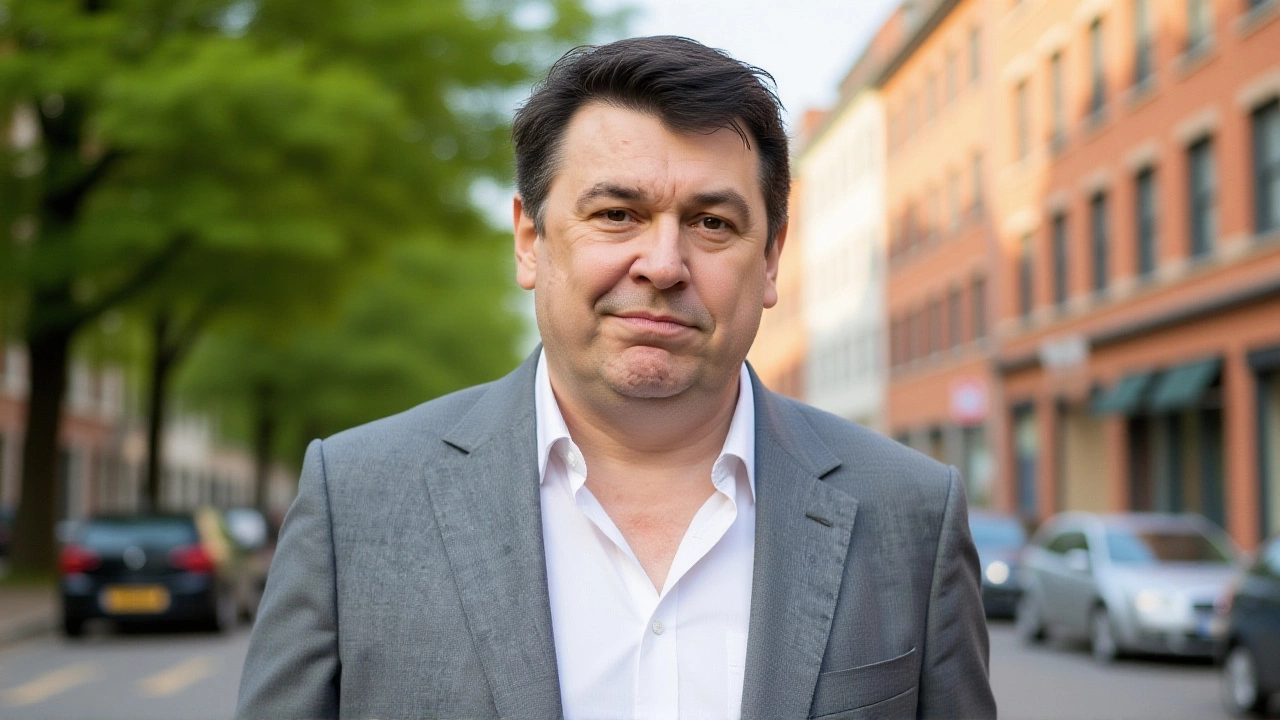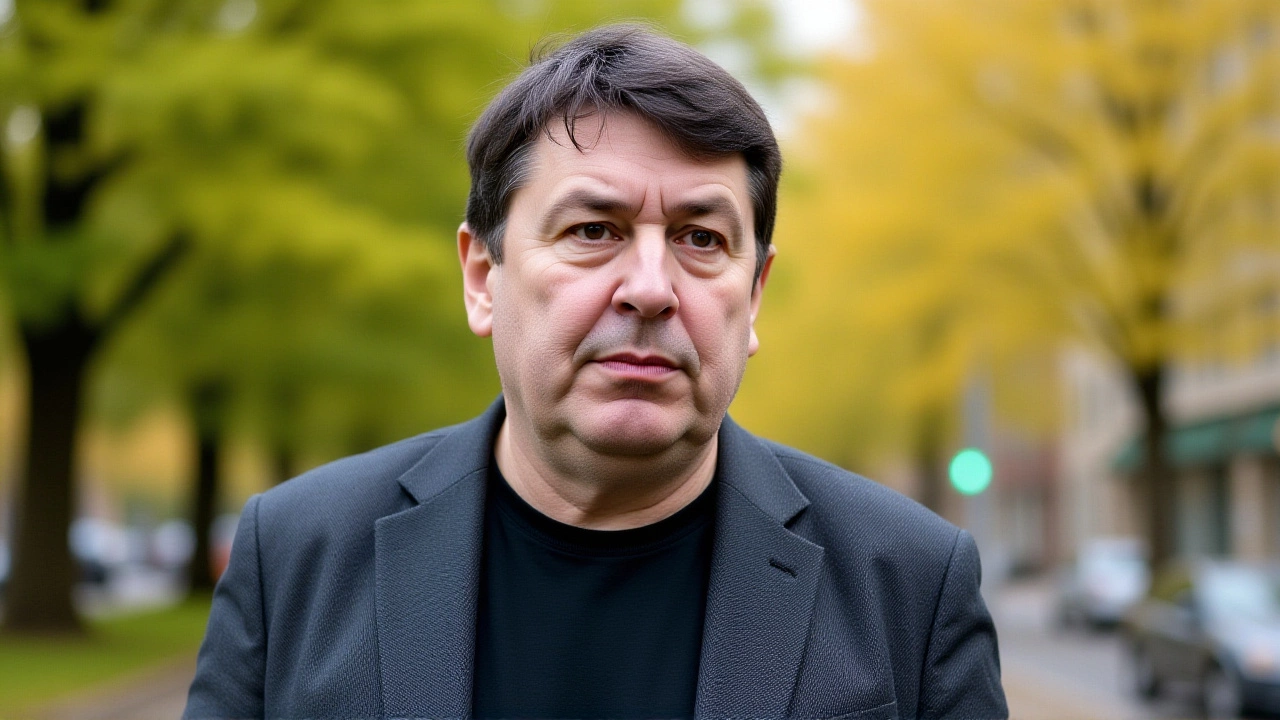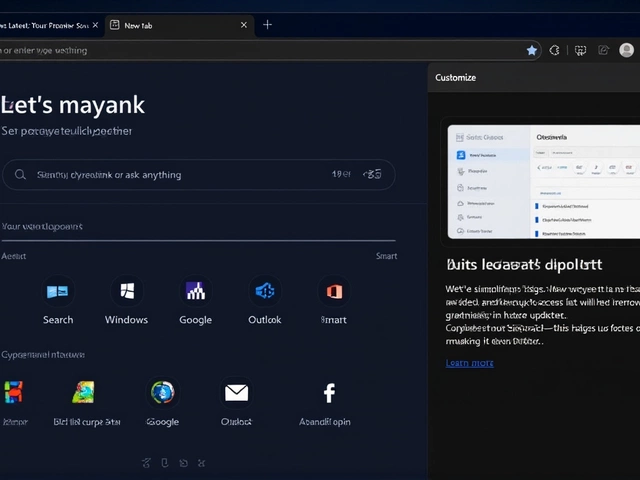On Tuesday, November 25, 2025, Graham Linehan, the 57-year-old Irish-British comedy writer behind Father Ted and The IT Crowd, walked out of Westminster Magistrates' Court with a mixed verdict: cleared of harassment, but convicted of criminal damage. The case centered on a heated encounter outside the Battle of Ideas conferenceLondon on October 19, 2024, where Linehan knocked a mobile phone to the ground during a confrontation with 18-year-old transgender activist Sophia Brooks. The ruling, delivered by District Judge Briony Clarke, didn’t just settle a legal dispute—it ignited fresh debate over where free speech ends and harassment begins.
"Not Harassment, But Still Damaged"
The court heard that Brooks had been filming delegates during a speech by Fiona McAnena of Sex Matters when Linehan approached. After she asked him, "Why do you think it is acceptable to call teenagers domestic terrorists?"—a phrase he’d used online—he reportedly lost his temper. "You’re a sissy porn-watching scumbag," he allegedly shouted. "You’re a groomer. A disgusting incel." Brooks fired back: "You’re the incel, you’re divorced." The phone, which Brooks was holding, was knocked to the ground and cracked. Linehan didn’t deny the act. "I was angry and fed up," he told the court.
But the judge didn’t buy the harassment claim. "I am not satisfied that Linehan’s conduct amounted to harassment," Clarke said. She noted his social media posts—while "deeply unpleasant, insulting and even unnecessary"—weren’t targeted, repetitive, or oppressive. He’d only tagged Brooks once. "They were unattractive, annoying, irritating—but not criminal," she concluded. The prosecution’s argument that his online behavior was "repeated, abusive, unreasonable" didn’t hold up. The judge found Linehan to be "a genuinely frank and honest witness," while questioning Brooks’s account of emotional distress.
The Phone That Started It All
The criminal damage charge was a different story. The judge didn’t need to wade into the culture war to rule on that. She accepted the evidence: Linehan, visibly agitated, reached for the phone, knocked it down, and caused physical damage. That’s not protected speech. That’s a misdemeanor. "He didn’t steal it. He didn’t smash it. But he did intentionally cause damage," Clarke said. The court saw no justification—no self-defense, no provocation that legally excuses destruction of property.
Linehan’s lawyer, Sarah Vine, called it a "momentary lapse of control," not a pattern of behavior. She accused Brooks of "following a course of conduct designed both to provoke and to harass Mr. Linehan," pointing to the filming, the public confrontation, and the timing—just weeks after Linehan had been arrested in September 2024 on suspicion of inciting violence against trans women. That earlier arrest, which never led to charges, had already made Linehan a symbol for free speech advocates.

"My Life Was Made Hell"
Linehan, who flew in from Arizona for the verdict, testified that he’d been "made hell" by what he called "trans activists." He described Brooks as a "young soldier in the trans activist army." His defense painted him as a target—a public figure whose views on gender identity had turned him into a lightning rod. The court didn’t rule on whether those views were right or wrong. It ruled on what he did.
"It is not for this court to pick a side in any matter of public debate," Clarke emphasized. That line echoed through the courtroom. It was a reminder: judges don’t settle ideological battles. They enforce laws. And the law says: don’t break people’s phones, even if you think they’re provoking you.
What Comes Next?
Linehan was fined £500, ordered to pay £650 in court costs, and a £200 statutory surcharge—totaling £1,350. He didn’t get a criminal record, but he did get a conviction. His lawyer confirmed he plans to appeal the criminal damage ruling. "We believe the court misunderstood the context," Vine said. "This wasn’t vandalism. It was a reaction to being ambushed."
The Free Speech Union, which supported Linehan throughout, called the verdict a "partial victory." They celebrated the dismissal of the harassment charge as a win for dissenting voices. "This case was never about whether someone’s gender identity is valid," said a spokesperson. "It was about whether you can be prosecuted for saying things people find offensive. The court said no—and that matters."
But for Brooks and other trans activists, the ruling felt like a betrayal. "He called me a groomer and an incel in public," Brooks said after the hearing. "And now he’s being treated like the victim? That’s not justice. That’s silence dressed up as neutrality."

Why This Matters Beyond One Phone
This case isn’t just about Graham Linehan or Sophia Brooks. It’s about the growing tension in the UK—and across the West—between two powerful values: free expression and personal dignity. When a comedian who helped define British TV humor is dragged into court over a tweet and a dropped phone, it tells us something about where we are.
Linehan’s work—Father Ted, The IT Crowd—was built on absurdity, satire, and pushing boundaries. He once joked about priests, the Pope, and televisions that talked back. But now, the joke’s on him. The lines aren’t funny anymore. They’re litigated.
Meanwhile, young activists like Brooks are using smartphones as weapons of accountability. They record. They share. They call out. And sometimes, they get hit back—not with words, but with fists, or in this case, a hand that knocked a phone to the ground.
The court didn’t take sides. But society will. And the fallout will ripple through comedy clubs, university debates, and Twitter threads for years.
Frequently Asked Questions
Why was Graham Linehan cleared of harassment but convicted of criminal damage?
The judge found Linehan’s social media comments, though offensive, didn’t meet the legal threshold for harassment—there was no sustained targeting or threat. But damaging someone’s phone intentionally, even in anger, is a clear criminal act. The court drew a line: words aren’t crimes, but breaking property is.
What role did the Free Speech Union play in this case?
The Free Speech Union provided legal support and public advocacy for Linehan, framing the case as a defense of unpopular opinions. They highlighted his arrest in September 2024 over alleged incitement as evidence of a pattern of targeting dissenters. Their involvement turned this into a symbol for broader free speech debates in the UK.
How did the judge view Sophia Brooks’s testimony?
District Judge Briony Clarke said she didn’t accept Brooks’s evidence "entirely," particularly regarding the level of distress caused. She found Linehan more credible and consistent, though she didn’t accuse Brooks of lying. The judge emphasized the court’s role isn’t to judge who’s right in a cultural debate, but to apply the law to specific actions.
What’s the significance of Linehan appealing the criminal damage conviction?
An appeal could challenge whether the damage was truly intentional or merely a reflexive act in a charged moment. If successful, it might set a precedent for how courts handle emotional outbursts during public confrontations. But even if he wins, it won’t erase the fact that his words and actions contributed to a toxic exchange that ended with a broken phone—and a broken trust.
Does this verdict mean it’s now safe to call people "groomers" online?
No. The court didn’t endorse those terms—it called them "deeply unpleasant" and "unnecessary." What it said was that calling someone a "groomer" online, without direct threats or sustained targeting, doesn’t meet the legal definition of harassment. But that doesn’t mean it’s acceptable—it just means the law isn’t the tool to punish it, at least not yet.
What happened to the phone? Was it repaired?
The court didn’t require Linehan to pay for repairs, but Brooks confirmed the phone was damaged beyond simple screen replacement. She said it had a cracked back and intermittent connectivity issues. She’s since replaced it, but the data—photos, messages, recordings from that day—were lost. "That’s the real cost," she said. "Not the fine. The silence."






